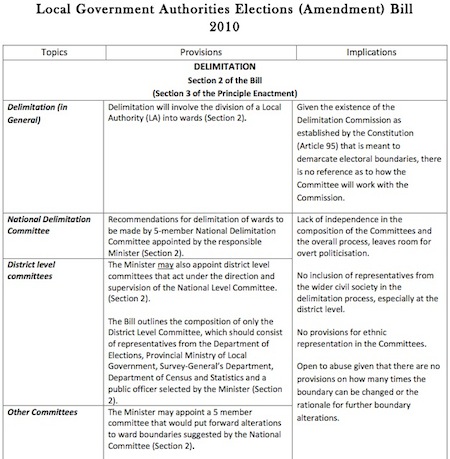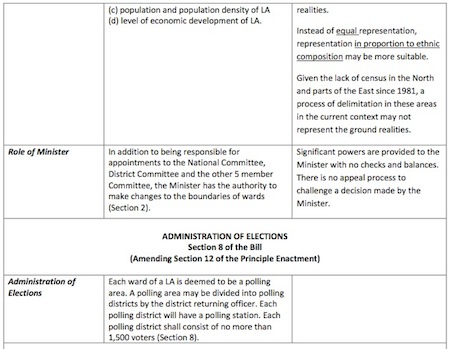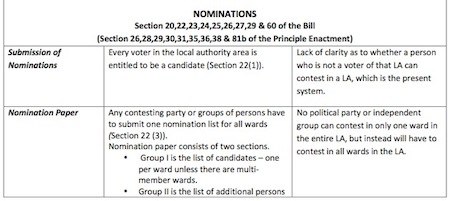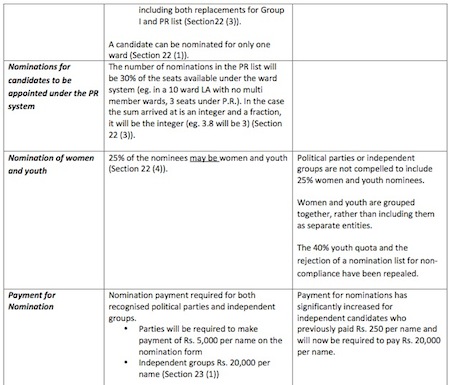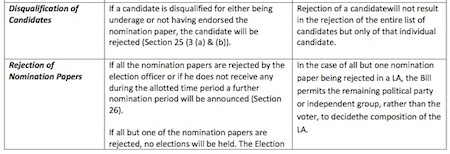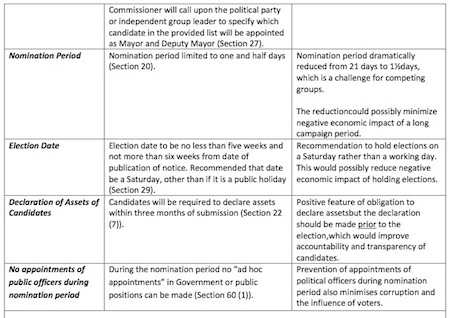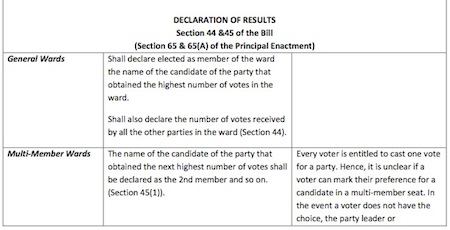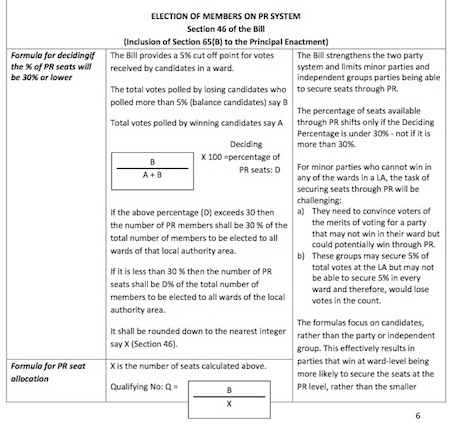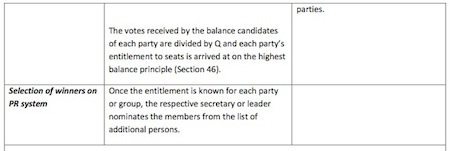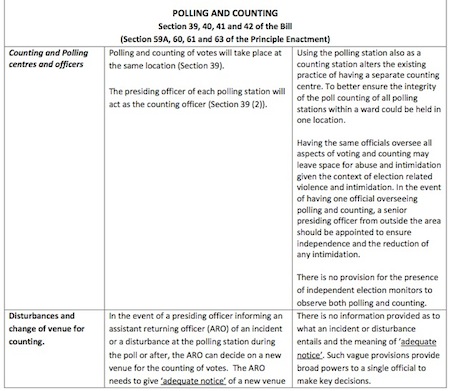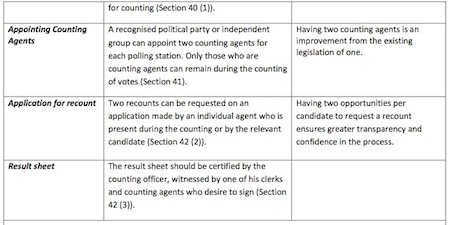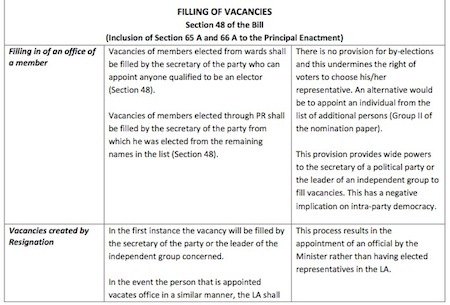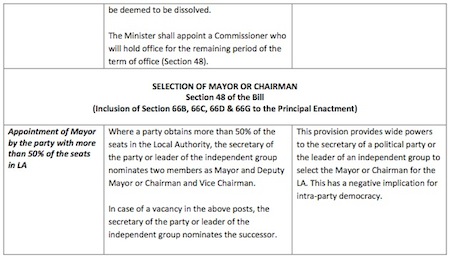By Bhavani Fonseka, Supipi Jayawardena and Mirak Raheem
October 2010
The Local Authorities Elections (Amendment) Bill 2010 (Bill) proposes a series of changes to the laws relating to the election of local authorities (LA) that include Municipal Councils, Urban Councils and Pradeshiya Sabhas.
A principal change proposed in the Bill is the introduction of a mixed system of First Past the Post (FPP) and Proportional Representation (PR). The Bill reintroduces the ward system, whereby a LA is divided into a number of electoral units. Each ward elects one member, unless in the case of a multi-member ward. The number elected under the PR system is not fixed. A maximum of 30% of the number of members elected under FPP of a LA will be appointed under PR.
The Bill has several salient features including strengthening the processes for counting and polling in order to ensure the integrity of an election. Although positive measures are noted, there are serious concerns with several provisions introduced in the Bill including the following:
- While laying out specific procedures in terms of vacancies of seats and of candidates, it provides significant powers to the secretaries of political parties and the leaders of independent groups to make the appointments to fill vacancies, instead of the voters making a choice through a by-election.
- The Bill delineates a delimitation process for the purpose of demarcating wards in local authorities with far-reaching powers granted to the Minister over the process.
- In the event of a vacancy created by the resignation of a Mayor and if the latter occurs on consecutive occasions, the LA will be dissolved and replaced by a Commissioner appointed by the Minister.
The Bill has significant repercussions for representative democracy, including the increase in challenges for minor parties and independent groups to secure seats, thereby reinforcing the two-party system. There are no specific guarantees for minority representation, either through the electoral process or through delimitation mechanisms. In addition, there are no guarantees for female and youth in the nomination process. Given that LAs are the unit of government closest to the people, there is a need to ensure that elected officials are representative and accountable to their constituencies. Although the Bill introduces new measures for LAs, it broadens the powers of the Central Government rather than empowering LAs and ultimately falls short of strengthening representative democracy.
###
Download this short report as a PDF here.
Download the Local Authorities Elections (Amendment) here and the Local Authorities (Special Provisions) Bill here. Both PDF’s originally downloaded from Government Printing Department website, from where it is almost impossible to download these documents.
###
